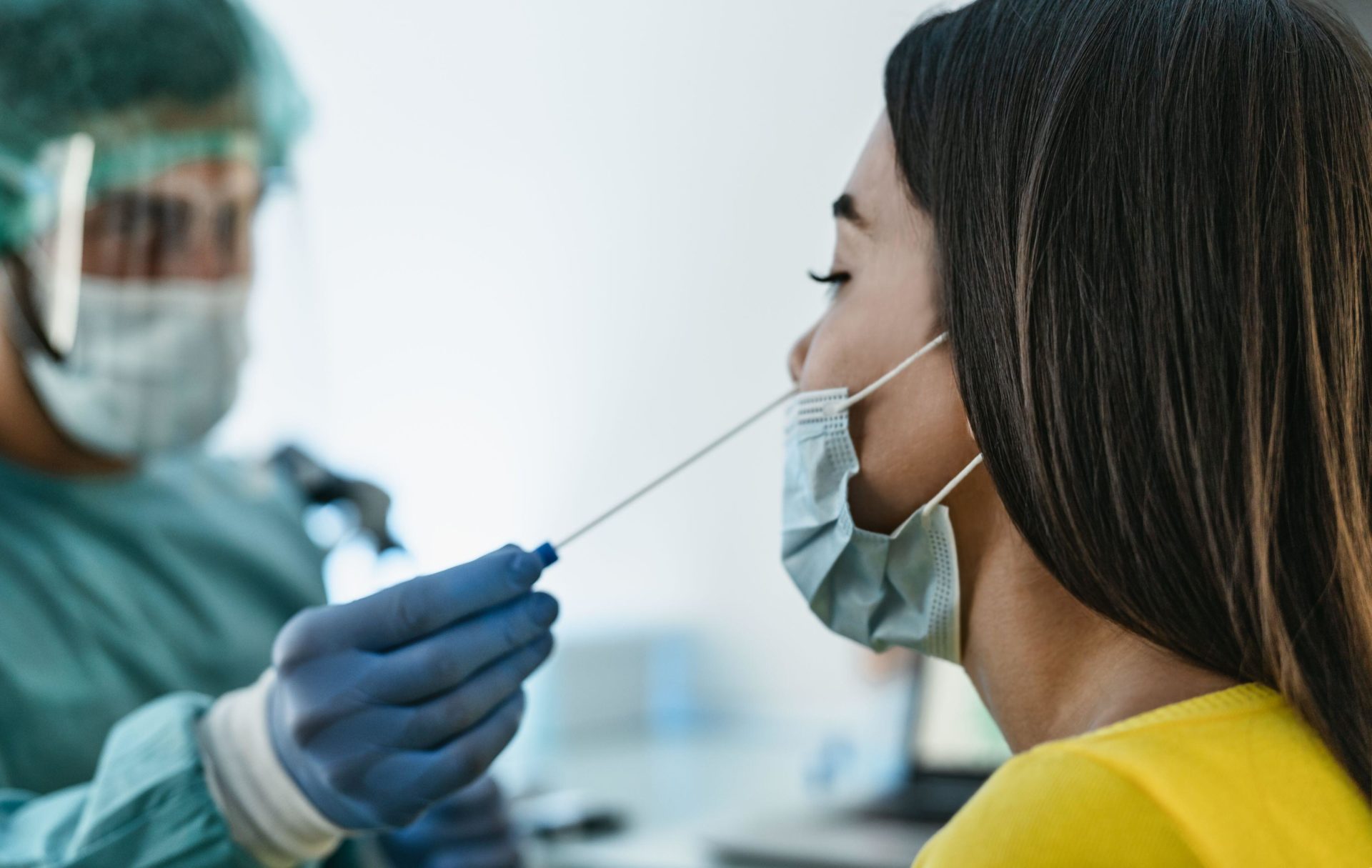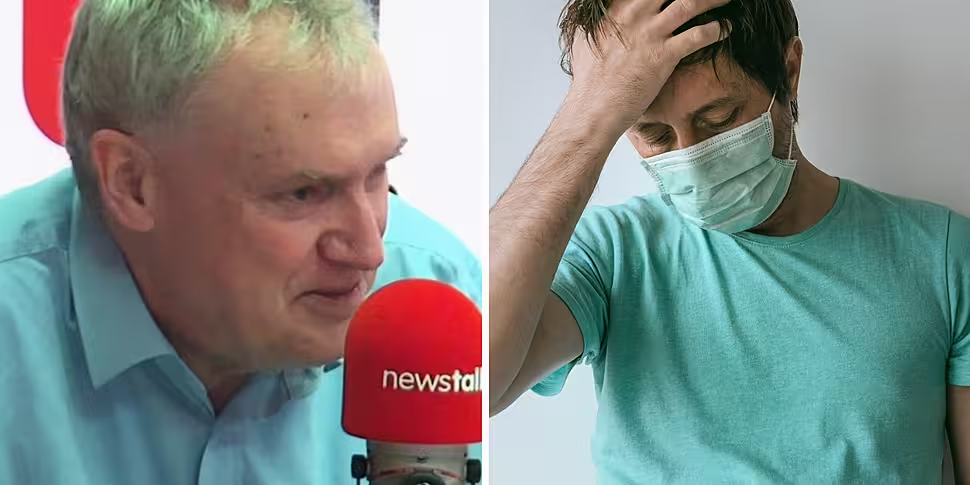New research on long COVID shines a light on why some patients feel the effects of the illness months and even years after getting infected.
An Australian study has identified some of the most common symptoms of long COVID.
On The Pat Kenny Show, Professor Luke O'Neill said fatigue, brain fog, shortness of breath and muscle and joint pain are the most typical symptoms of long COVID.
However, Prof O'Neill said some long COVID patients may develop serious long-term effects.
"It can have very serious symptoms that can go on for a long time, including organ damage, kidneys can be damaged, your liver can be damaged as well," he said.
"Blood-clotting seems to be part of the mechanism - for some reason tiny clots form in tissues and that begins to damage those tissues."
Blood-brain barrier
Prof O'Neill said there is evidence that the virus can enter the brain.
"It can cause some damage there - fatigue and brain fog are probably due to some kind of brain injury," he said.
"The big one that was discovered this year was the blood-brain barrier gets breached.
"That's how your blood vessels connect with the brain and that gets a bit leakier in people with COVID."
Research suggests some demographics may be more at risk of developing long COVID, including older people, women and people with asthma.
 Medical worker wearing personal protective equipment doing a COVID virus swab on female patient, Alamy
Medical worker wearing personal protective equipment doing a COVID virus swab on female patient, AlamyProf O'Neill said patients whose dose of COVID was "very severe" also have a higher chance of developing long COVID.
In terms of treatment, Prof O'Neill said there is no "really effective tablet" long COVID patients can take.
"Rest seems to be the big one - if you feel fatigued, rest and that seems to bring benefits," he said.
"At the moment, there seems to be no obvious treatments."
The good news, according to Prof O'Neill, is that 70% of people who get sick with long COVID recover after two years.
You can listen back here:
Feature image shows Professor Luke O'Neill (L) and a man wearing a face-mask (R, via Alamy)









